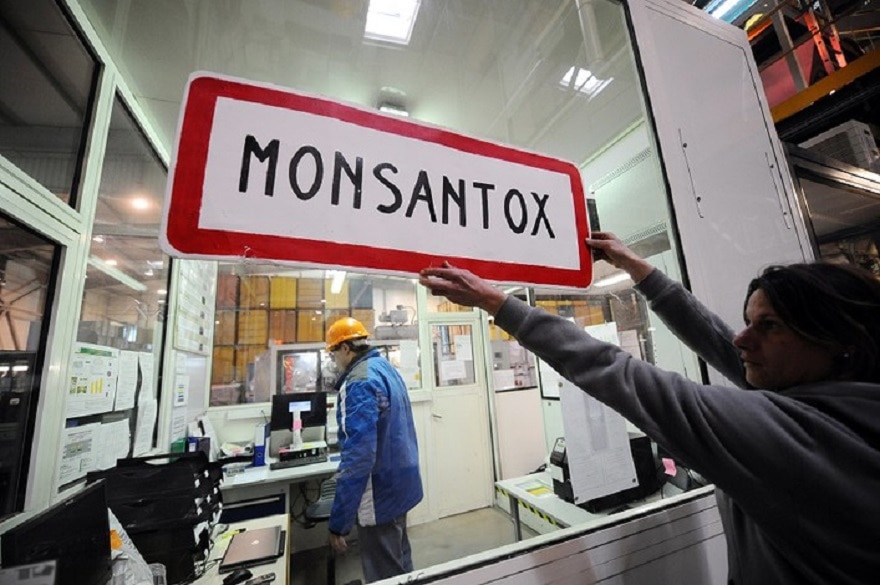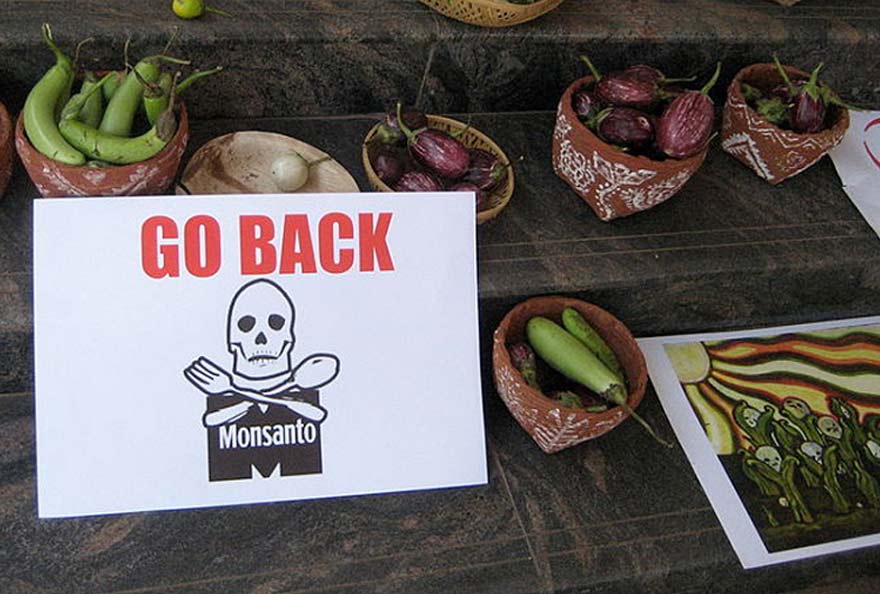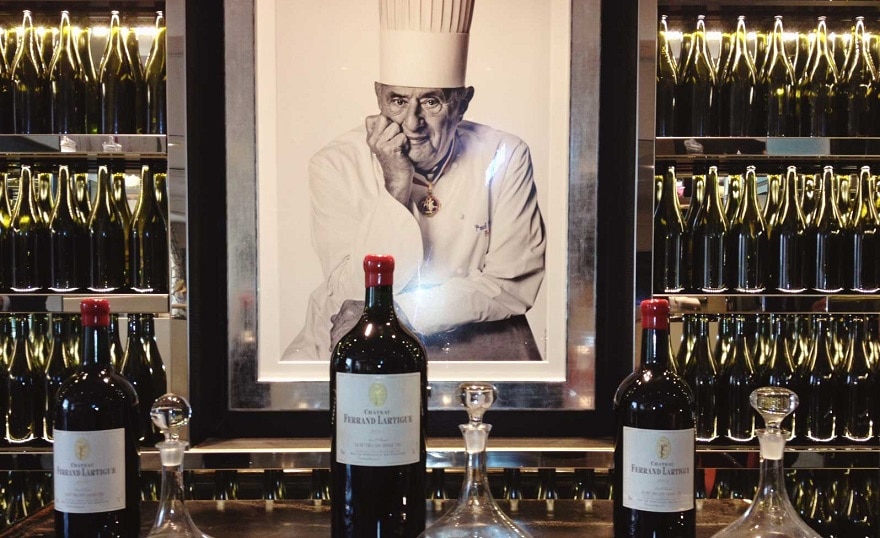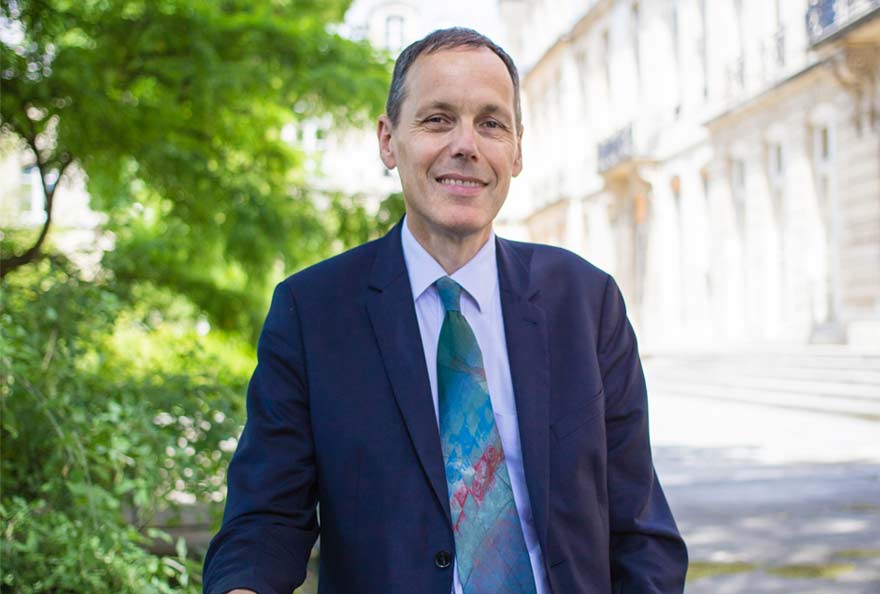The Citizen's Court exercise is intended to explain Monsanto's failures to respect the rights to health, food, a healthy environment, freedom and access to information, the rejection of war and the protection of life. We must take the multinationals at their word, which are making a lot of announcements, extolling their ethical values. It may be that the greatest fear of the groups being sued is that they will lose their reputation. Will they be able to continue to purge their liabilities with impunity by being bought out?
Ahe designer lobbies of seduction campaigns, such as the Black Rock Group in the U.S., can worry. Because by advising companies to multiply codes of good conduct, to appoint ethics or human rights directors, they could well see the process ruin their clients. This is the argument developed by William Bourdon, a lawyer from the Paris Bar, who was invited to make a closing argument at the closing of the Citizen's Tribunal dedicated to Monsanto, this weekend in The Hague. « Soft law is not for dogs! » he exclaimed, inviting the five jurors of the court to take a close look at the statements of the multinational company, attesting to its irreproachable behaviour.

Plea of William Bourdon
Because that's where his Achilles' heel might be... "If you don't take Monsanto's ethical commitments seriously, you encourage cynicism." It proposes to consider in particular Monsanto's Code of Ethics - a 28-page document available on its web page- to verify that the firm is meeting its own commitments.
This approach is similar to the strategy used by Corinne Lepage in the Erika trial (in 2012), which proved Total's failure to meet the commitments set forth in the Group's internal charter. "Our role is not to judge or condemn, but to see if Monsanto's activities are in compliance with international human rights law."confirms Françoise Tulkens, former Vice-President of the Court of Justice for Human Rights and President of the Monsanto Tribunal.
These rules may be derived from various international provisions, Conventions or Treaties (Rio, Kyoto, Cartagena, human rights, the rights of the child, discrimination against women, United Nations guiding principles of business and human rights law, etc.), the Rome Statute establishing the rules of the International Criminal Court, or rules that the company has set for itself or to which it has acceded such as the United Nations Global Compact.
Violation of scientific freedom
The procession of 30 witnesses from all over the world who have come to The Hague this weekend for the Monsanto Tribunal could give the jurors who have to render their verdict by 10 December, the anniversary of the declaration of human rights, some grain to grind.

The 5 judges with the Belgian president Francoise Tulkens in the center.
Their stories have described malformed children (those of Maria Liz Robledo in Argentina or Sabine Grataloup in France), polluted waters, dispossessed or cheated peasants (like Percy Schmeiser whose crops have been contaminated by neighbouring GMOs), Scientists under pressure (think of the testimony of Nicolas Defarge, co-author of the Séralini study, or that of Claire Robinson who indicates that King's College London confirms the damage to the kidney and liver of glyphosate-based products often loaded with dangerous adjuvants (works of Robin Mesnage).
Stories that repeat over and over again situations of collusion and corruption. "And that's a new violation, according to William Bumblebee, that of scientific freedom. The confiscation of information by Monsanto, this strategy of concealment, of disinformation, is the necessary condition for the universal perpetuation of the violation of all other rights". supports Sherpa's founder and defender of the victims of Agent Orange in Vietnam.
A charge supported by a number of situations where the public interest turns into private interests, such as in the case of Richard Goodmana former Monsanto employee, who is now an advisor to the magazine. Food and Chemical Toxicology (CTF) who had G.E. Séralini's article withdrawn. Thus, for William Bourdon, "There is no monopoly without a strategy that unites deadly products with deceptive ones. The more one lies to get rich, the more one is forced to be in denial and in the discredit of those who criticize. And this is proportional".
When Paraguay bends under duress
It is clear that Monsanto has become the caricature of a system where new, sophisticated manoeuvres involve multiple complicities. Corinne Lepage sees in the story of Paraguay, told by public health expert Miguel Lovera, the ultimate domination: "The completion of the system is when Monsanto becomes the state itself".
In 2012, when the government had refused to import GM cotton from Monsanto, a coup d'état occurred and the new government authorized cotton within eight days. Then the new government introduced a tax of 3 to 5$ per hectare, called the "Monsanto tax", paid by exporters. We are truly faced with a power of some 250 multinationals, held by less than 70 people who hold half of the heritage of the whole of humanity. If the States do not succeed in resisting the onslaught of private interests, it is unlikely that we will be able to avoid the plundering of the resources that support our survival.
"In contrast to the centralized jurisdiction of the big executioners, the responses to corporate cheating will be varied, explains William Bumblebee behind the scenes. This unpredictability of the law will be a source of fragility for the industrial giants.". The vice tightens with convictions to huge fines like the $18-billion fine inflicted on Chevron for the pollution that affected 30,000 indigenous people in Ecuador. Except that the State is unable to enforce this decision: while the fine was initially halved, the judgment was overturned in New York in March 2014 by Judge Lewis Kaplan. Attorney Pablo Fajardo denounces an unprecedented disaster: Chevron spilled at least 70 million litres of oil residues and 64 million litres of crude oil on a territory of 2 million hectares in the Ecuadorian Amazon. " What is more serious is that Chevron damage continues to cause and kill hundreds of people a year..., indicates Pablo Fajardo. According to statistics from various public health studies, there are rates of cancer, leukemia, and miscarriages up to three times higher than the rest of Ecuador. In recent years, according to the data available to us, at least 2,000 people have died of cancer in the Northern Amazon.
Liability Purge Strategy
The judges of the citizen court will try to answer the six questions according to the terms of reference related to the right to a healthy environment, food and water, health, freedom and knowledge. They will also have to consider whether Monsanto's conduct constitutes complicity in a war crime (use of Agent Orange during the operation Hand ranch) launched in 1962 in Vietnam, as well as ecocide crimes against living things that alter ecological cycles and planetary commons.
This effort will increase the momentum to strengthen corporate responsibility. At the Collège de France, Mireille Delmas Marty also intends to become involved in the search for a new type of global governance capable of empowering complainants and avoiding "nice escapes". This is how we can now look at the takeover of Monsanto by Bayer. For some lawyers, it is very likely that we are faced with a purge strategy in order to rid the multinational company of repeated convictions (from dozens of health scandals and more than a hundred lawsuits worldwide). If this is confirmed, it will soon create a so-called "hive-off" structure to absorb the liabilities. The sleight of hand here would be the same as that performed by Union Carbide, after the Bhopal disaster, which saved its assets by being absorbed by Dow Chemical. A process made possible by Dow Chemical's corporate purpose admitting that a liability of a purchased company is not assumed by the purchaser.

And we'll live in happy days...
There is still a long way to go before we can establish a real field of social responsibility. Time does not work for multinationals that sabotage their reputation in small ways. The association Stop corporate impunity is organising a week of mobilisation in Geneva from 24 to 29 October. Similarly, the NGO Our common business mobilizes on all issues of climate protection, environmental damage, fundamental rights. As a common front, about a hundred authors (including Jean Gadrey and Valérie Cabanes...) published a book entitled And we'll live in happy daysIt proposes a social pact to rebuild a climate of trust. Urgent, isn't it?

Photos: © Dorothée Browaeys - UP'magazine












